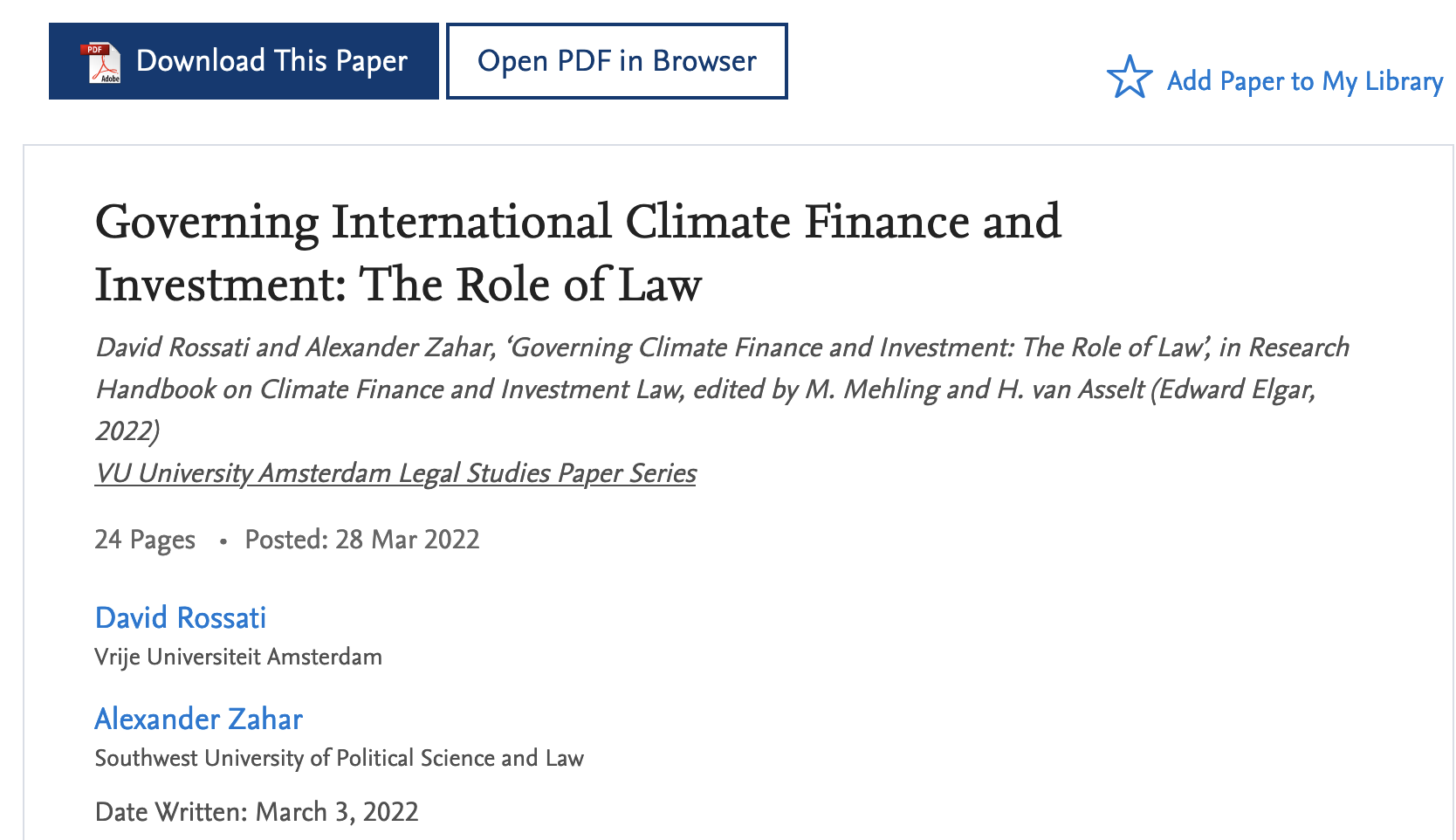David Rossati will be talking about his paper (with Alexander Zahar) about the role of law in governing climate cand investment. Originally conceived of as a form of inter-state support under the United Nations Framework Convention on Climate Change, climate finance has evolved into the highly complex and contested affair of disbursing public resources from developed countries in order to leverage private finance and investment for climate-related projects in the Global South. The analysis evaluates the law and other regulatory instruments according to their role in promoting or discouraging climate finance and investment across selected themes and sites of governance. These are (i) the nature of the international obligations on climate finance under the treaties of the international climate change regime; (ii) the emerging ‘aquis’ in the transnational regime consisting of multilateral development banks and their policies in implementing and aligning their actions to the targets of the Paris Agreement; (iii) the conflicts and potential linkages with climate finance created by international trade law and international investment law; and (iv) the juridification of climate bonds and of socially responsible investment initiatives for the climate. The overall picture is of a fragmented and dispersed landscape, where law generates different levels of governance and control, starting from the more densely regulated activities that channel public climate finance to the self-regulatory initiatives of the private sector, where legal interventions are only at their early stages. Coherence favouring a ‘smooth transition’ of global capital towards sustainable pathways, if ever desired, is far from being promoted.

This event has passed.

